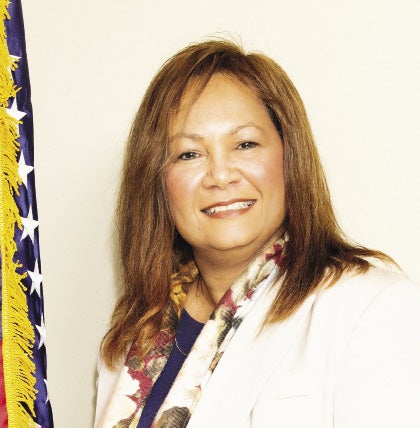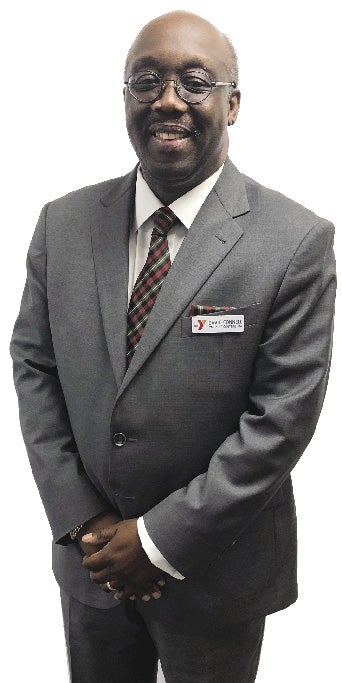In the midst of the COVID-19 pandemic and widespread protesting against racial inequality, the YMCA of Central Massachusetts’ doors are always open to continue to work towards equality with all groups.
Get Instant Access to This Article
Subscribe to Worcester Business Journal and get immediate access to all of our subscriber-only content and much more.
- Critical Central Massachusetts business news updated daily.
- Immediate access to all subscriber-only content on our website.
- Bi-weekly print or digital editions of our award-winning publication.
- Special bonus issues like the WBJ Book of Lists.
- Exclusive ticket prize draws for our in-person events.
Click here to purchase a paywall bypass link for this article.
In the midst of the COVID-19 pandemic and widespread protesting against racial inequality, the YMCA of Central Massachusetts’ doors are always open to continue to work towards equality with all groups.
David Connell, president and CEO of the Worcester social service nonprofit, just finished his first year in his position leading the YMCA. He is the first CEO of color at the YMCA of Central Mass. and one of the few black CEOs of a leading business organization in the region.
The first nine months of his tenure included highlights like a record number of summer campers, serving 204,000 healthy meals and snacks, and supporting 1,400 children in programs providing affordable childcare and financial assistance to families in need.
Connell was able to fully integrate the Tri-Community Family Branch in Southbridge along with further implementing its mission framework, people, programs, and philanthropy, as its guiding principles.
These are just a few of the YMCA’s achievements before coronavirus interrupted their programming.
It was “a very good first year,” said Connell.
During COVID-19
Though coronavirus changed his job, many of the YMCA’s programs and much of its community work could easily be transferred into the virtual realm.
Donata Martin, executive director of the Boys & Girls Club of Fitchburg and Leominster, talked about how important it is for nonprofits to continue serving their communities in a time like this.

“We can have a lot of different programming utilizing the resources we have in the community,” said Martin, another one of the few black leaders of a major Central Massachusetts social service nonprofit. “Everyone is learning together.”
The Boys & Girls Club of Fitchburg and Leominster has been able to use videos to continue its STEM-based learning mission, sending videos of chicks hatching and fish developing to children in its programs.
The nonprofit has been sending letters in the mail to children, developing soft skills in the process.
Like the Boys & Girls Club, the YMCA continues to use virtual means to reach its members.
YMCA has an online community center, fitness classes, learning resources, and a mobile food program.
Finding opportunity in crisis
A large part of nonprofit organizations’ community support goes beyond online classes.
The YMCA opened up four sites to provide childcare for essential workers. Each site had a capacity of 40 children and all of the sites were close to this capacity level.
“It took some courage to do so,” said Connell. But they were able to implement strict criteria to help protect the children and the staff while providing this necessary and important service to essential workers in the community.
YMCA works with other nonprofit organizations, businesses, and lawmakers in order to influence policy to better help the community.
The YMCA had already been doing work in the community providing resources and aid to families in need, but the COVID-19 pandemic really highlighted how much the YMCA could do to help the community in these areas, Connell said.
“We were able to hit a number of goals I had…but there’s more work to be done...COVID-19 also showed us there’s a lot of opportunity that we will need to fill as we move forward,” he said.
Key areas of need coronavirus made very clear are issues of healthcare disparities, child care, and food insecurity, Connell said, and responding to communities needing assistance from a health perspective is an area the YMCA can work with others to help respond to.
Battling inequality
Part of responding and assisting these communities is the YMCA’s commitment to social and racial justice.
As an organization, YMCA of Central Massachusetts made a statement early on supporting the Black Lives Matter movement. It is working with the Worcester Together Coalition to not just make a statement, but invoke action as well.
“We are a place that can help foster discussions,” said Connell.
YMCA leverages the work it has done with its staff surrounding diversity and inclusion to help facilitate these discussions and make real changes.
“We continue to make some real tangible steps as folks go through this trauma that is a microcosm of issues taking place across the country,” said Connell.
However, Connell discussed how this work cannot be done individually or in isolation.
“Each organization should continue to look at where there are gaps, continue to make sure we are training our staff, so that we can interact appropriately and be in place for young leaders,” said Connell.
Connell grew up going to the YMCA in Worcester after immigrating from Barbados and has deep ties to the area.
Connell’s diverse background of experiences, whether it be in his career in banking to his life of volunteering, along with his race, faith, and experience in the Worcester community allows him to build strong relationships with staff, volunteers, members, and community leaders, he said.
“It is true that representation of people of color and women running organizations continues to be a challenging area,” said Connell, “and there needs to be additional work with that.”
For Connell, this work focuses on “how well we source for candidates and how well we develop candidates” on a local and national level.
“I see it as a level of development and exposure … There are a lot of great candidates around the country and we have to make sure they’re sourcing to find those candidates,” said Connell.
It is also important to have mentors from all levels of diversity and backgrounds, said Connell. His own mentors helped him along in his career and were an important part of him being in his current position.
The lack of diversity in an organization’s leadership is not just a problem in Central Massachusetts, he said.
“It continues to be a low percentage, and that’s not just in Massachusetts or Worcester County,” said Connell, “it happens to be beyond our local area.”
Through his position, the YMCA can continue to “create a place where we can have new voices. That [provides] an opportunity for us to heal, and grow, and move forward,” said Connell.

